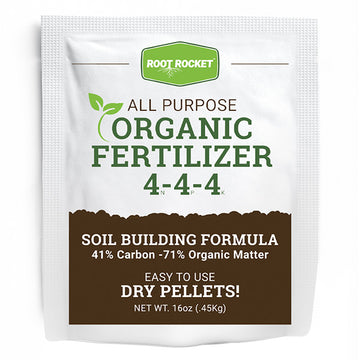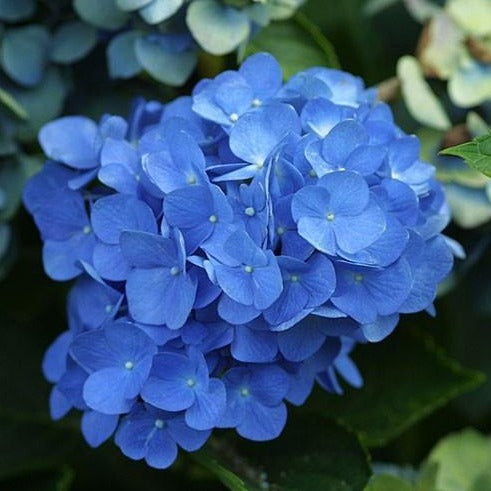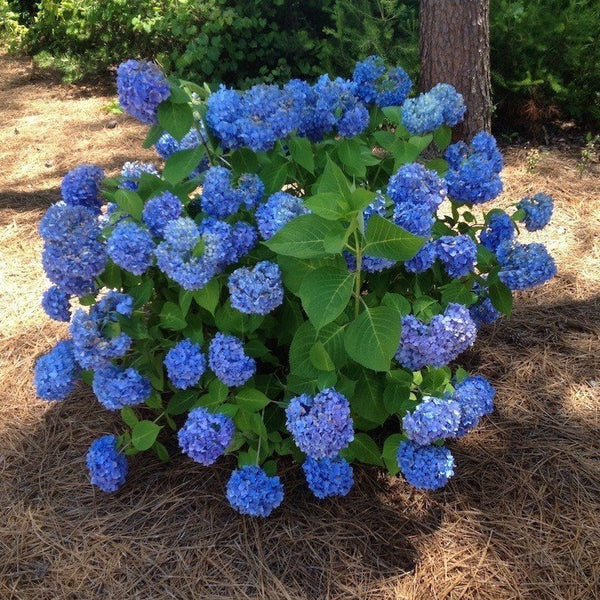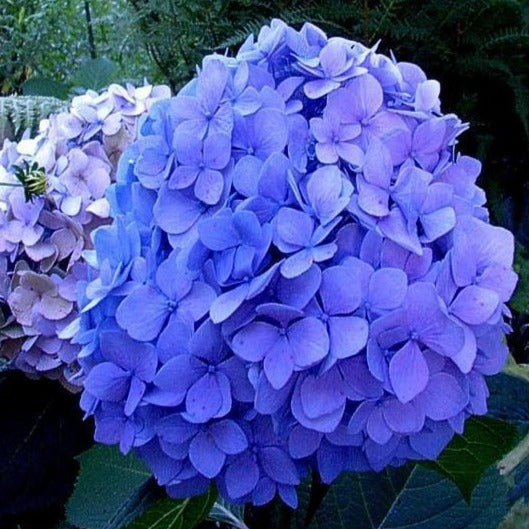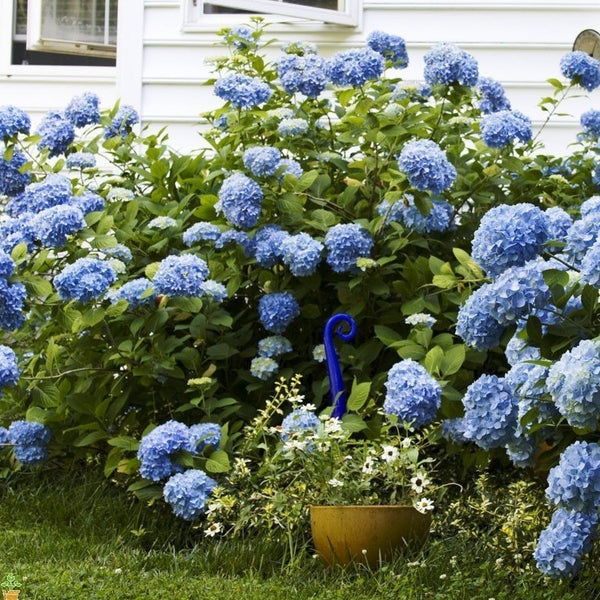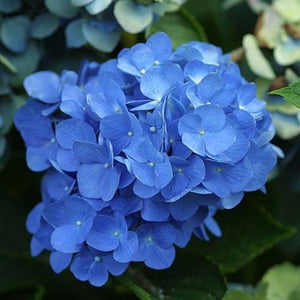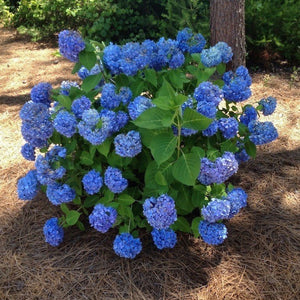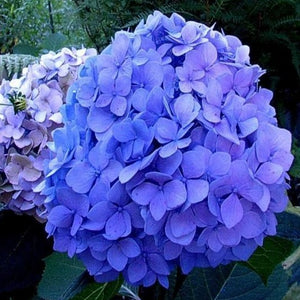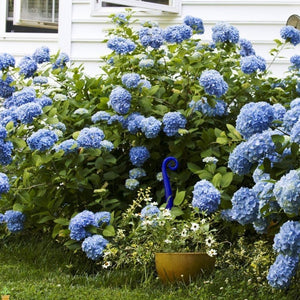Nikko Blue Hydrangea
Product Details
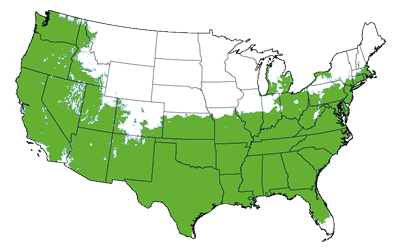 Growing Zones 6-9
Growing Zones 6-9
| Soil Type | Acidic |
| Sunlight | Full, Partial |
| Drought Tolerance | Good |
| Mature Height | 3-4 Feet |
| Mature Width | 4-5 Feet |
| Growth Rate | slow |
| Bloom Color | Blue, Multicolored, Pink |
| Shipping Restriction | AZ |
The Nikko Blue Hydrangea is a perfect fit for your garden. With its lush, green foliage and huge flowers, this Hydrangea will definitely add color to your landscape.
Plant your Nikko Blue Hydrangea anywhere. Hydrangeas can be planted as a specimen, in groups of 3's, or even a hedge. This Hydrangea will get up to 5 feet tall by 5 feet wide.
This Nikko Blue Hydrangea likes acidic soil. If the soil is more on the neutral size, the color of the blooms will be pinker. Add aluminum sulfate to the soil to make your blooms bluer.
Hydrangeas will thrive in full sun to part shade areas. Be sure to keep your new Hydrangea watered after planting. Hydrangeas are the first plant in the landscape to show signs of wilting when dry.
The Nikko Blue Hydrangea is a low-maintenance shrub. After each bloom, prune off old blooms and your Hydrangea will bloom again! In the winter months, prune lightly to maintain size.
When planting your Nikko Blue Hydrangea be sure you have the right location and conditions for your new plants to thrive. Spring and Fall are ideal times to plant Hydrangeas. Avoid planting hydrangeas in summer when temperatures are mid80s or higher.
The Nikko Blue Hydrangea requires full sun to part shade and prefers moist, well-drained, fertile, acidic soil. In hot climates, hydrangeas will do best with some shade. If you have alkaline soil, be sure to amend your soil to maintain the deep blue color. To acidify your soil, amend with compost, elemental sulfur, or use fertilizers specific for acid loving plants. Mulching with pine straw or pine bark will help over time as they begin to break down, they will naturally add acidity to the soil. Keep the soil moist, but not saturated, especially in summer and in the first year after planting. Throughout its life Hydrangeas will do best with a deep watering once weekly during hot temperatures.Mulching at about 3 inches deep is highly recommended for hydrangeas. Mulching will cut back on watering needs and protect your plant in extreme temperatures. Choose a slow release fertilizer for acid loving plants. Fertilize once in spring after the last chance of frost and again in early summer for best results. You don’t need to prune hydrangeas, but pruning after they are done blooming can help encourage a bushier growth and renew an older plant.
The best way to prevent disease and pests is by providing the appropriate care for your plants. Proper location choice, watering, and fertilization are the keys to your success. You can treat mites, scale, whiteflies, and aphids naturally with neem oil or insecticidal soap. For severe infections you can use pesticides like carbaryl, also known as Sevin. Fungal infection can be prevented by making sure the planting site has good drainage and by avoiding overhead watering. Fungal infections can be treated with a fungicide. Generally, treating fungus after infection isn't effective so if you have problems with other plants or in a prior year, treat preventatively in early spring.

